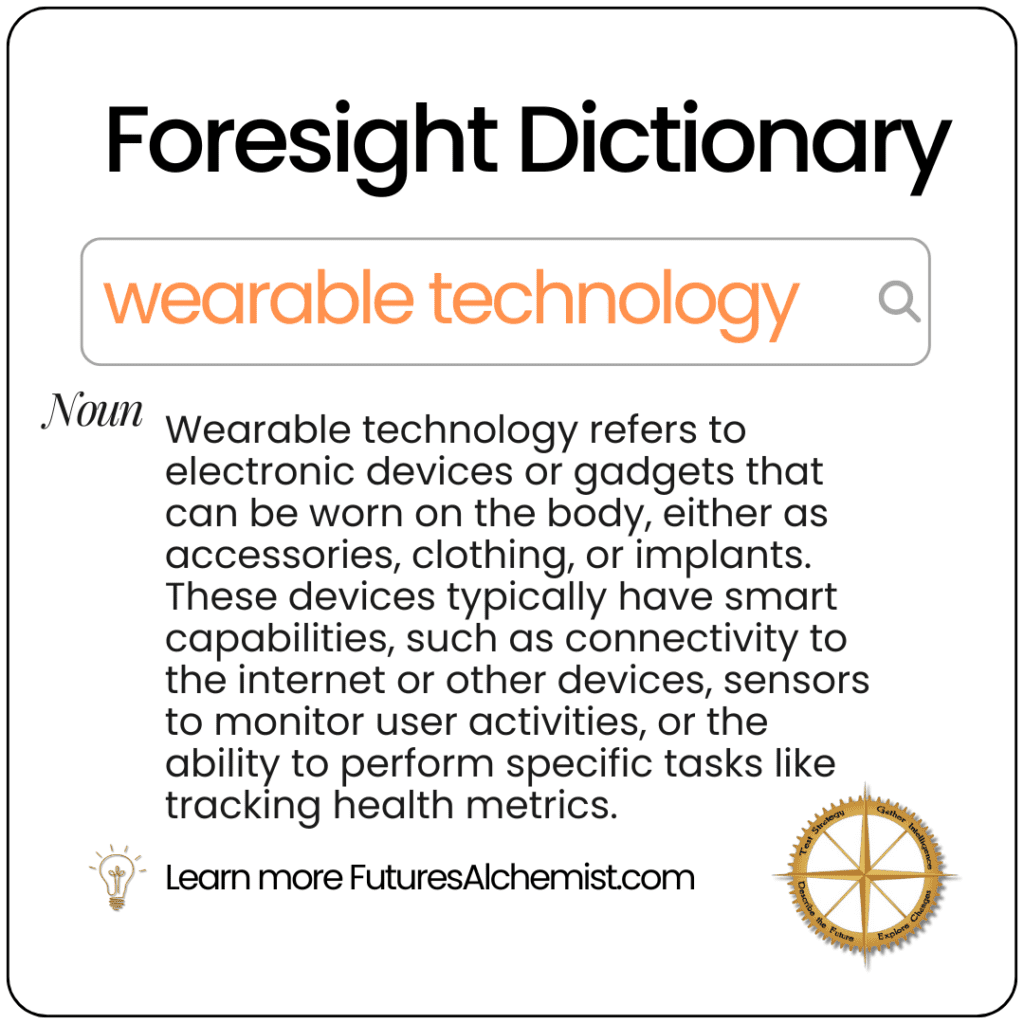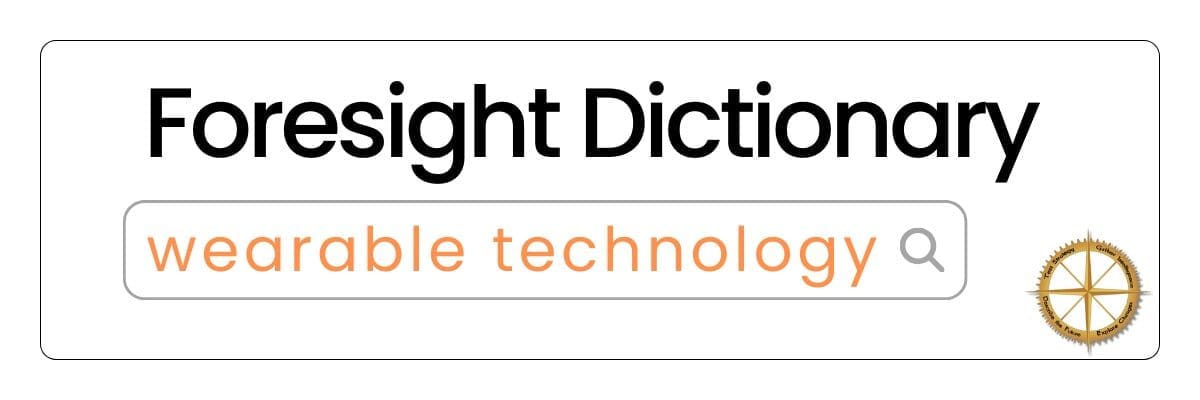

Definition
Wearable technology refers to electronic devices or gadgets that can be worn on the body, either as accessories, clothing, or implants. These devices typically have smart capabilities, such as connectivity to the internet or other devices, sensors to monitor user activities, or the ability to perform specific tasks like tracking health metrics.
Example
The Apple Watch is a prominent example of wearable technology, offering health monitoring features such as heart rate tracking, ECG capabilities, and fitness tracking, along with the functionality of a traditional smartwatch.
Ask yourself
- How could wearable technology enhance or change my daily routine?
- What ethical concerns should we consider with wearable tech that collects personal data?
- How can wearables evolve to benefit industries beyond healthcare, like education, retail, or transportation?
- How will the development of wearable technology impact jobs and social structures in the future?
Tools
- PESTEL Analysis: Examines the Political, Economic, Social, Technological, Environmental, and Legal factors shaping the development and adoption of wearable technology.
- Scenario Planning: Develops multiple future scenarios to explore how wearable technology might evolve under different circumstances (e.g., mass adoption vs. niche uses).
- Backcasting: Determines the steps needed to achieve a desired future where wearable technology is seamlessly integrated into daily life or specific sectors like healthcare or education.




